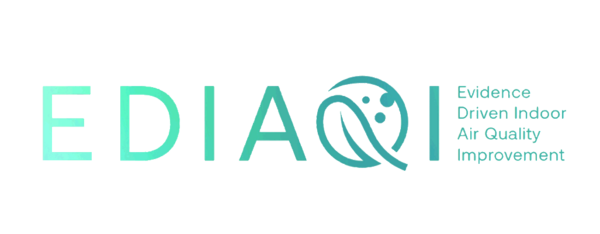The “EDIAQI” research project deals with indoor air pollution. EDIAQI aims to conduct basic research for a uniform, long-term strategy for monitoring indoor air pollution.
Background:
The topic is relevant for example because people in industrialized countries spend up to 90% of their time indoors, especially since COVID-19. Studies show that poor indoor air quality can increase health risks such as respiratory diseases and COVID-19 deaths. In Europe, particulate matter significantly reduces life expectancy, with children, the elderly and people with respiratory diseases being particularly at risk. Various factors influence indoor air quality, such as the level of outdoor pollution, the transport of pollutants between indoor and outdoor areas, emissions, chemical reactions of gases in the environment and inadequate ventilation. However, there is a great lack of representative data and comprehensive risk assessment estimates. In addition, air quality compliance guidelines and reference levels for indoor pollutants vary widely across the EU, leading to polarization of the issue and different living conditions. This in turn leads to the need to protect the most vulnerable and avoid inequalities, which can be ensured mainly by adapting indoor air quality monitoring guidelines.
Approach:
EDIAQI aims to conduct basic research for a uniform, long-term strategy for monitoring indoor air pollution. The research findings should provide the scientific community with a better understanding of indoor air pollution and scientifically founded information that is relevant for the definition of appropriate guidelines and the strategic implementation or promotion of technological innovations to improve air quality. EDIAQI is investigating various scenarios of indoor pollution in residential areas and public facilities (e.g., cinemas, hospitals, schools, etc.) in Europe. To quantify the pollutants, modern measuring instruments and sensors are used to show differences between the subpopulations in terms of exposure concentration and respiratory deposition.
Organization:
To achieve its objectives, the project brings together 18 organizations (including TROPOS, The Lisbon Council for Ecnomic Competitiveness Asbl, Wings ICT Solutions, TU Graz etc.) from 11 European countries, bringing a wide range of interdisciplinary skills and expertise in areas such as environmental science and technology, medicine and toxicology, microphysics, as well as policy making and public relations.

